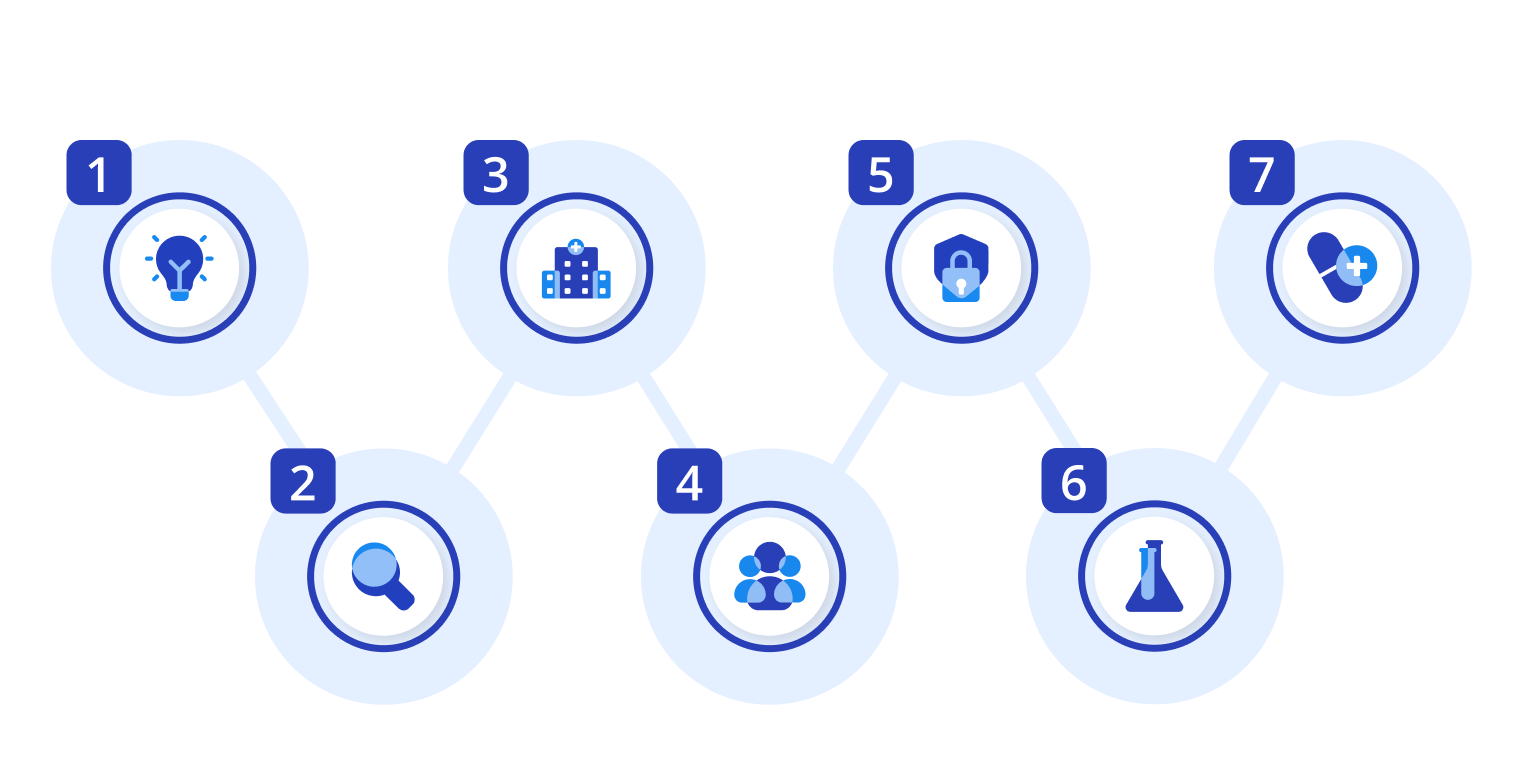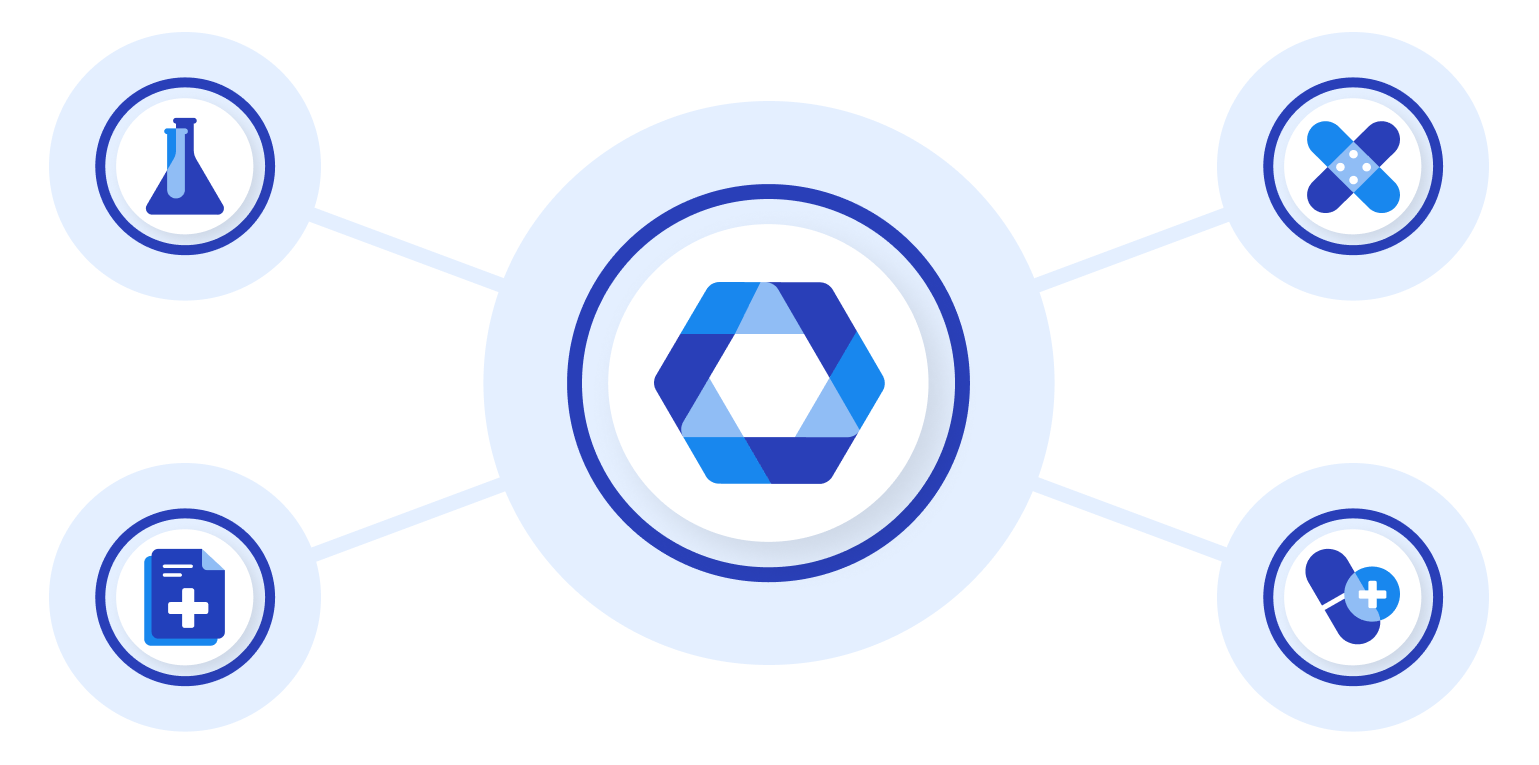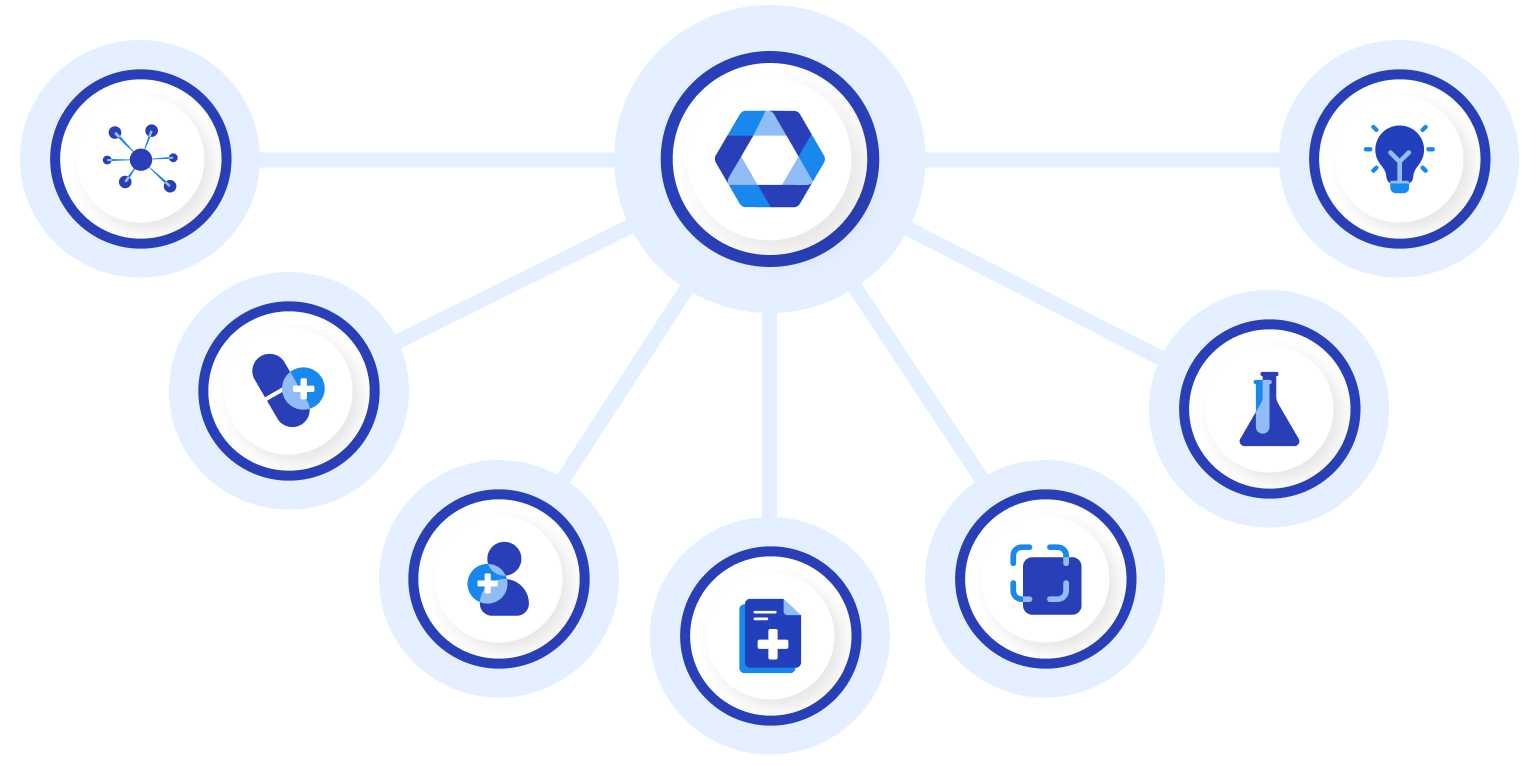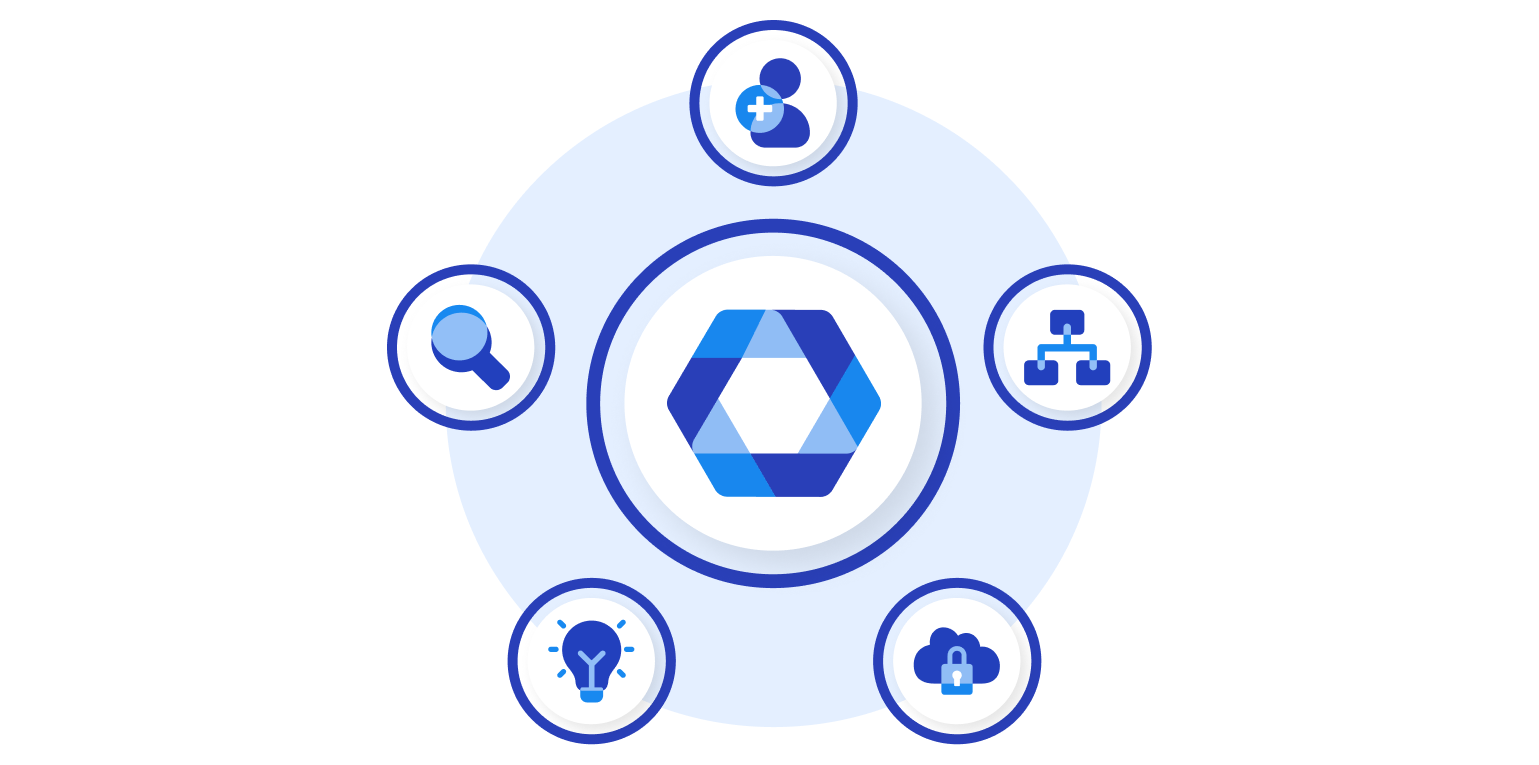Artificial intelligence (AI) has become a popular term in various sectors, including healthcare and pharmaceuticals. It’s drastically changing health systems, improving not just patient care but also drug discovery and development.
The importance of AI in clinical trials is undeniable. This powerful tool can potentially transform the entire life cycle of a clinical trial.
Learn more about the specifics of how AI is driving modern improvements in healthcare, particularly in drug development and clinical trials, in this article.
Leveraging AI in Modern Drug Development
From initial drug discovery to post-market surveillance, AI has immense potential to make drug development faster, more cost-effective, and more accurate. This technology is particularly instrumental during multiple stages of the drug development process.
Stages of Drug Development
Understanding how a drug goes from the lab to a patient’s bedside provides critical insights into the role of AI in modern drug development.
The drug development process involves several stages, each with specific objectives and challenges. AI can help in each stage to improve the efficiency and success of the overall process.
Here’s an overview of these stages and how AI is transforming them:
Discovery and Development
In the discovery and development stage, AI can accelerate the process of finding and refining potential drugs. It can sift through vast chemical data and identify potential drug candidates faster and more efficiently than traditional methods.
Preclinical Research
In preclinical research, AI can streamline the process by identifying promising drug candidates earlier and more accurately. This can help avoid failures in later stages, which are costly and delay the development of life-saving drugs.
Clinical Research
AI has a profound impact on clinical research by enhancing patient screening, recruitment, and monitoring, reducing timelines and costs. It can help identify suitable participants by analyzing genetic, biometric, and demographic data and monitoring patient health and drug responses in real-time.
FDA Review
AI can also facilitate data interpretation and submission during the FDA review process to ensure faster market entry. It can help pharmaceutical companies present data in a way that highlights the drug’s efficacy and safety to increase the likelihood of FDA approval.
FDA Post-Market Safety Monitoring
AI plays a crucial role in post-market surveillance by accurately identifying negative side effects from large, diverse post-market data. Machine learning algorithms can sift through vast amounts of data to identify patterns and anomalies, allowing quick responses when problems arise.
Manufacturing
In the manufacturing stage, AI can enhance the processes by predicting potential quality control issues, ensuring the product is consistent and reliable. It can also be used to automate certain processes to improve efficiency and reduce the risk of human error.
Pharmacovigilance
AI excels in automating pharmacovigilance activities, reducing the time, costs, and errors associated with manual processing. It can quickly identify potential safety concerns, leading to faster, more effective responses.
AI for Drug Design
In drug design, AI is increasingly becoming an indispensable tool. With its powerful analytical and predictive capabilities, it can refine and expedite the otherwise complex process of drug design.
Harnessing AI’s Potential in Drug Design
Drug design is a complex, exhaustive process that involves understanding complicated biological processes, determining suitable target proteins, and designing drug molecules that interact effectively with these targets.
AI’s role in this process is twofold. Firstly, it helps understand the vast, complex biological data to identify suitable drug targets. Secondly, it assists in creating drug molecules that are effective and safe and have good pharmacokinetic properties.
With AI, we can use machine learning models trained on extensive datasets of molecular structures to predict the interaction of a potential drug molecule with its target protein, a task virtually impossible for human researchers due to the sheer volume of data.
AI can also be used to design drugs with specific properties related to absorption, distribution, metabolism, excretion, and toxicity (ADMET), increasing the likelihood of clinical success.
AI’s Role in Addressing Intractable Challenges in Drug Design
AI is critical in solving difficult problems in drug design, including predicting drug toxicity, tackling multidrug resistance, optimizing molecular properties, and drug repurposing.
Overcoming Drug Toxicity
AI provides a solution to one of the most significant challenges in drug design: predicting drug toxicity. Late-stage failures in clinical trials due to unforeseen toxicity cost the pharmaceutical industry billions every year.
AI trained on extensive toxicity data can predict the potential toxic effects of a drug long before it enters clinical trials, saving both time and resources.
Tackling Multidrug Resistance
Multidrug resistance, particularly in treating diseases like cancer and tuberculosis, is a huge challenge to healthcare. AI’s ability to analyze vast, complex datasets can help find new drug targets and design drugs capable of overcoming resistance, improving treatment outcomes.
Optimizing Molecular Properties
Designing a drug with the right balance of efficacy, safety, and suitable ADMET properties is another significant challenge. AI can automate and accelerate this time-consuming task by modeling and predicting the molecular properties of many drug candidates.
Drug Repurposing
Identifying new therapeutic uses for existing drugs, known as drug repurposing, is a promising strategy to speed up the drug design process. AI can sift through vast amounts of data to find potential new applications for existing drugs. By repurposing drugs that have already been approved, we can skip the early stages of drug development, saving time and resources.
By harnessing the power and potential of AI, we can overcome these challenges and revolutionize the drug design process. The introduction of AI in drug design promises to accelerate the delivery of new, effective treatments to patients, opening a new era in healthcare.
Examples of AI Applications in Drug Design
AI is proving to be of tremendous value in drug design. Its ability to process large-scale data and generate predictive models is transforming how drugs are designed, accelerating the development process and improving the success rate.
Here are some specific applications of AI changing the landscape of drug design:
Molecular Dynamics Simulations
Machine learning can enhance molecular dynamics simulations, making them faster and more accurate. This is particularly useful in drug discovery, where understanding the dynamic nature of biomolecules is critical for designing new drugs.
Structure-Based Drug Design
AI can assist in structure-based drug design by predicting the interactions of molecules with their target proteins, making drug discovery processes more efficient. This could result in drugs that are more potent, selective, and safe.
Biomarker Identification
Machine learning algorithms can identify and validate biomarkers from complex biological data. Identifying these critical markers can lead to early disease diagnosis and the development of personalized treatments.
Ligand-Based Drug Design
Machine learning can also predict how ligands and proteins interact and their binding affinities to help in drug design. Accurate predictions can help identify potential drug candidates that can bind to target proteins with high specificity, leading to better treatment results.
Drug Repurposing
AI can analyze vast datasets to find potential candidates for repurposing. This can lead to huge cost and time savings, as repurposed drugs have already passed several safety tests.
Chemical Synthesis Prediction
Predicting chemical synthesis pathways and reactions is an important aspect of drug development. Machine learning algorithms can automate this process and provide valuable insights into possible routes for new drug synthesis.
Quantitative Structure-Activity Relationship (QSAR) Modeling
Machine learning can contribute significantly to QSAR modeling, a method used in computational chemistry to predict the biological activity of molecules. By accurately predicting molecular properties, it helps design and optimize new drug candidates.
Accelerating Drug Development
AI’s application in accelerating drug development is getting considerable attention. The drug development process is currently long, costly, and uncertain. The conventional process takes 10 to 15 years on average and costs billions of dollars, with a high failure rate. AI is changing this and making the process more efficient.
Early Prediction of Drug Efficacy and Potential Side Effects
AI can significantly expedite drug development by predicting drug efficacy and potential side effects early. Machine learning algorithms can analyze massive datasets, including clinical trial data, real-world evidence, genetic data, and more, to predict how a potential drug candidate will behave.
This can save significant time and resources by identifying promising drug candidates and eliminating those likely to fail.
Efficiency and Cost Reduction
AI can improve the efficiency of the drug development process through automation. It can automate many tasks that are usually time-consuming and manual, such as data collection and analysis, adverse event monitoring, and patient recruitment. This not only saves time but also reduces the likelihood of human errors, potentially saving millions of dollars.
Moreover, AI’s ability to analyze large amounts of data quickly and accurately can lead to more focused and efficient clinical trials.
AI can help find the most suitable patients for a clinical trial based on specific genetic and clinical data. This reduces the number of patients needed and the time required to get statistically significant results, resulting in smaller, more efficient trials that can save substantial costs and time.
Case Studies of Accelerated Drug Development Using AI
AI has already proven its worth in drug development. For instance, AI was used to create an Ebola vaccine. It analyzed vast amounts of data to predict which combination of biological and chemical agents would likely result in an effective vaccine. The use of AI helped speed up the development process significantly, and a vaccine was approved in record time.
Similarly, an AI-based company, Insilico Medicine, claimed to design a new drug candidate in just 46 days using AI instead of the usual two to three years using conventional methods.
These examples demonstrate the power of AI in speeding up drug development. Its ability to accelerate drug development has huge implications for the entire healthcare ecosystem.
For pharmaceutical companies, it could mean faster time to market and lower development costs. The view of patients, it could mean quicker access to innovative, life-saving treatments. For healthcare providers, it could mean better patient outcomes due to the availability of more effective treatments.
Advantages of AI in Clinical Trials
AI offers several advantages in clinical trials:
Faster Time to Market
By streamlining the clinical trial process, AI can significantly reduce the time a drug takes to reach the market. The faster a drug gets to market, the faster it can help the patients who need it.
Reduced Costs
Time is money, and so is precision. By reducing the length of clinical trials and increasing their success rates, AI can save pharmaceutical companies billions of dollars.
More Accurate Data Analysis
AI can analyze vast amounts of data quickly and accurately, reducing human error. It can also detect patterns in data that might be missed by human researchers, leading to more accurate results.
Personalized Medicine
AI’s potential to analyze big data can help create personalized treatments that consider individual genetic and clinical data. Such targeted treatments can be more effective than traditional one-size-fits-all treatments.
Improved Patient Outcomes
AI’s ability to predict treatment outcomes and adverse events can lead to better treatment strategies and, consequently, improved patient outcomes.
Enhanced Scalability
AI allows for larger-scale trials and more extensive data processing than manual methods. This makes it possible for healthcare companies to handle complex and diverse datasets effectively.
Real-World Examples of AI Applications in Clinical Trials
The impact of AI on clinical trials isn’t just theoretical. Here are some real-world examples of how AI is transforming clinical trials:
Patient Recruitment and Screening
AI has been used to simplify patient recruitment and screening for clinical trials. By analyzing patient health records and other data, it can identify potential participants who meet the specific criteria of a trial, reducing the time and expense of manual screening.
Trial Design and Optimization
AI can assist in designing and optimizing clinical trials. By predicting the outcomes of different trial designs, it can help researchers choose the most efficient and effective design.
Data Collection and Analysis
AI can automate the process of data collection and analysis in clinical trials. It can process and interpret vast amounts of data from various sources faster and more accurately and objectively than humans.
Predictive Modeling
AI has been used to create predictive models in clinical trials. These models can forecast clinical trial outcomes, patient responses, and adverse events, leading to more efficient and effective trials.
Adverse Event Detection
AI has been used to detect adverse events in clinical trials. By analyzing data in real-time, it can identify potential safety issues quickly, allowing for faster responses and improving patient safety.
Clinical Trials in the AI Era: What Lies Ahead?
As we continue to embrace AI’s transformative potential in clinical trials, it’s crucial to look ahead and consider the emerging trends, challenges, and ethical issues that this might bring, shaping the future of healthcare and drug development.
Privacy Concerns
With AI’s growing prevalence in clinical trials comes an increased need to address issues around data privacy. AI needs significant amounts of data to function effectively, which raises concerns about patient privacy, especially given the sensitive nature of health data.
As data sharing increases, stringent regulations must be in place to protect patient data. Moreover, robust cybersecurity measures are necessary to prevent cyberattacks, data breaches, and unauthorized data access.
Future research must focus on developing AI algorithms that can function with minimal data and anonymized data to protect privacy without compromising efficiency.
AI – Hype or Reality?
While the potential of AI in clinical trials is undeniable, it’s essential to separate the hype from reality. AI has shown promise, but practical challenges, such as implementation barriers, high costs, and scalability, still persist.
The technology, although advanced, is still developing. It requires specialized knowledge, and there’s a steep learning curve associated with its use. Additionally, the interpretability of AI models remains a challenge.
As we move forward, it’s crucial to focus on these areas to facilitate AI’s seamless integration into clinical trials.
AI – An Essential for Decentralized Trials
The COVID-19 pandemic has led to a significant move toward decentralized clinical trials. This shift toward remote patient monitoring, virtual visits, and digital data collection will likely persist after the pandemic.
As we move toward a more decentralized model of clinical trials, AI can play a crucial role in addressing challenges. For instance, it can help manage the vast amounts of data generated in decentralized trials, provide real-time monitoring of patient data, and enable predictive modeling of patient outcomes.
As such, the adoption and integration of AI will be key in conducting successful decentralized trials.
A New Chapter in Drug Development and Clinical Research
As we enter the era of AI-driven clinical trials, it’s evident that AI will play an increasingly crucial role in shaping the future of drug development and clinical research. From automating complex processes to predicting outcomes with great accuracy, AI is set to transform the healthcare and pharmaceutical industry.
As AI evolves, it will become an increasingly significant tool for developing innovative, effective, and safe treatments. It’s time for all stakeholders in the field, including data scientists, bioengineers, pharmacologists, and clinical research coordinators, to embrace AI and lead this transformation.
If you’re ready to revolutionize your drug development and clinical trial processes with AI, explore Kizen’s innovative solutions tailored for the healthcare and pharmaceutical industry. Reach out to us today so we can discuss your needs.












